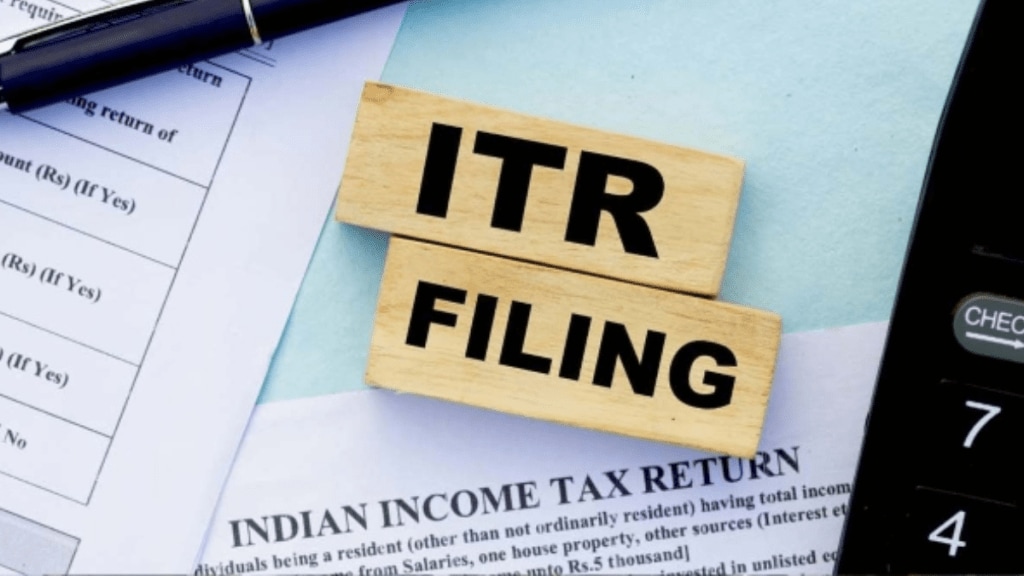Income Tax Returns 2024-25: With only a day left to file income tax returns, taxpayers across India are scrambling to submit their ITR before the 15 September 2025 deadline. Many are still unsure about the process, the penalties for delay, or the documents required. To help, here is a comprehensive set of frequently asked questions (FAQs) based on guidance from the Income Tax Department.
Q1. What are the different ITR forms?
The Income Tax Department has prescribed multiple forms for different categories of taxpayers:
ITR-1 (Sahaj): For individuals with income of up to Rs 50 lakh.
ITR-2: For individuals and Hindu Undivided Families (HUFs) not eligible for ITR-1, and not having income from business or profession.
ITR-3: For individuals or HUFs with income chargeable under “Profits and gains of business or profession.”
ITR-4: For resident individuals, HUFs, and firms (other than LLPs) with income up to RS 50 lakh, including business and profession income under presumptive taxation, and capital gains up to Rs 1.25 lakh.
ITR-V: The acknowledgement form generated after filing your return.
Q2. What are the different modes of filing ITR?
There are four modes available for filing ITR:
- Filing on paper.
- Filing electronically with a digital signature.
- Filing online and verifying with an electronic verification code.
- Filing electronically and then submitting ITR-V (acknowledgement).
Q3. Where can I file my ITR online?
Taxpayers can log on to the official portal: www.incometax.gov.in to e-file returns.
Q4. What is the e-utility facility?
The department offers free e-filing utilities (Java/Excel) to help taxpayers prepare and file returns online. These utilities come with built-in instructions to simplify the process.
Q5. Do I need to attach documents with my ITR?
No. ITR forms are attachment-free. However, keep proof of investments, TDS certificates, rent receipts, and other relevant records handy, as authorities may demand them during assessments.
Q6. Do I have to file ITR even if I made a loss?
Yes. If you want to carry forward a loss to offset against future income, you must file ITR before the due date.
Q7. Can I file ITR after the due date?
Yes, but it will be treated as a belated return and will attract late fees under Section 234F.
Q8. What is the penalty for filing after 15 September 2025?
If income exceeds Rs 5 lakh – Rs 5,000 late fee.
If income is up to Rs 5 lakh – Rs 1,000 late fee.
Additionally, delayed filing may result in interest charges and loss of certain deductions.
Q9. What if I paid excess tax?
Any excess amount paid will be refunded to your bank account via ECS transfer, once your ITR is processed.
Q10. Is there any disadvantage to filing ITR?
None. In fact, filing ITR is beneficial even if not mandatory, as it serves as proof of income for loans, visas, credit cards, and government applications.
Q11. Has the ITR filing deadline been extended for AY 2025–26?
No. Despite rumours and demands for an extension, the deadline remains 15 September 2025.
Q12. What penalties exist for not filing before the deadline?
- Late fee of Rs 1,000-Rs 5,000 under Section 234F.
- Ineligibility for certain deductions under Sections 10A, 80-IA, etc.
- Risk of prosecution, including imprisonment (3 months to 2 years, or up to 7 years if evaded tax exceeds Rs 25 lakh).
Q13. How to claim deductions under Section 80G?
Fill in details of donations in Schedule 80G of the ITR form. The schedule is divided into four tables depending on the type of NGO or charitable institution.
Q14. What is the Section 87A rebate for FY 2024–25?
Old Regime: Rebate up to Rs 12,500 if total income ≤ Rs 5 lakh.
New Regime: Rebate up to Rs 25,000 if total income ≤ Rs 7 lakh.
Q15. Can deductions exceed gross total income?
No. Chapter VIA deductions cannot exceed the Gross Total Income (GTI), except for exempt categories like capital gains and certain casual incomes.
Q16. Who must file Form 10-IEA to switch tax regimes?
For AY 2024–25 onwards, the new regime is default.
Taxpayers with business/professional income must file Form 10-IEA to opt for the old regime.
Others can choose their regime directly while filing ITR.
Q17. Can salaried employees claim deduction for excess rent if HRA is less?
No. Only HRA under Section 10(13A) can be claimed (old regime only). Section 80GG is not applicable if HRA is part of your salary.
Q18. What documents are required to file ITR?
Keep these ready:
PAN and Aadhaar
Bank details (with IFSC)
Form 16 (salaried)
Form 26AS and AIS
Capital gains statements
Investment proofs (tax saving, insurance, home loan interest)
Rent receipts or housing loan documents (if applicable).
Filing ITR on time helps avoid penalties, claim refunds, and maintain a clear financial record. With just one day left, taxpayers should gather the necessary documents, log on to the official portal, and complete their filing without delay.


